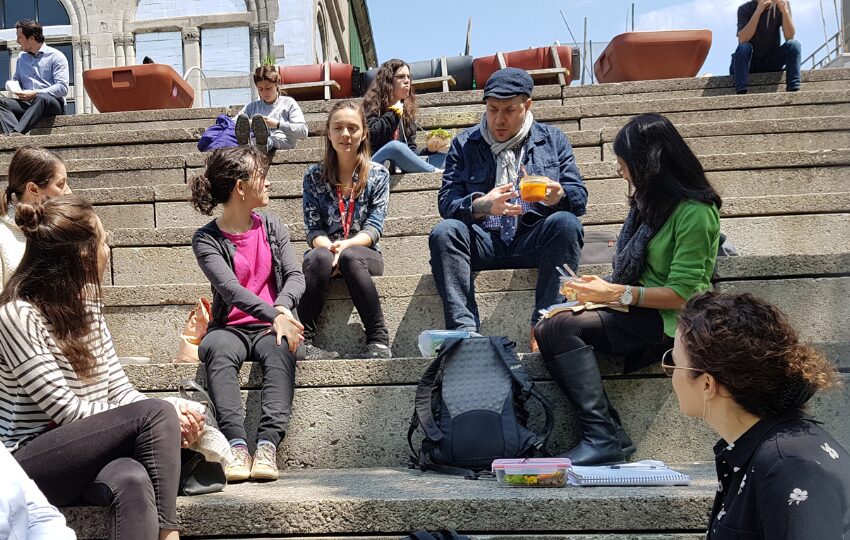
Registration is open for Climate Wayfinding, a series of six workshops designed to channel eco-anxiety and other climate emotions into meaningful action, while building a sense of community.
Offered by the McGill Office of Sustainability (MOOS) in partnership with the Faculty of Education and the McCall MacBain Scholarships at McGill, the series, supported by the Sustainability Projects Fund, is in its pilot phase.
“Climate change is the defining challenge of our time,” said Jessica Latus, a Sustainability Officer with MOOS. “While people want to take action, they might feel uncertain about where to start; this workshop provides space for students to reflect, hone their skills, and feel empowered.”
Offering workshops to help McGill community members address eco-anxiety is just one of the 42 action items in McGill’s 2025-2030 Climate & Sustainability Strategy.
“We’re proud to offer this workshop series at McGill, and we look forward to the benefits it will generate for participants,” said François Miller, Executive Director of Sustainability. “It advances McGill’s ambitious efforts to address environmental challenges and furthers its sustainability priorities.”
Taking climate action
Eco-anxiety is increasingly common among young people. In 2023 a survey of Canadians ages 16 to 25 revealed that 80 per cent felt climate change affected their mental health, and four out of 10 stated it took a daily toll on their well-being.
“One of the best ways to combat eco-anxiety is to find outlets to do something,” said Latus. “This workshop is meant to help channel your climate emotions – which may or may not be anxiety – into action.”
Latus will lead the workshop, having undergone training with The All We Can Save Project. McGill is one of 63 colleges and universities with trained facilitators on staff; others include MIT, Stanford and the University of British Columbia.
Latus’s co-facilitator is Justus Wachs, a PhD candidate in the Faculty of Education who serves as a teaching assistant for McGill’s Climate Crisis and Climate Actions course and co-designed the Eco-Justice and Sustainability in Education course.
“I wanted to be part of Climate Wayfinding because it offers something I think is so often missing in climate spaces: the time and space to reflect on what a meaningful, sustainable path in climate action can actually look like,” said Wachs. “I’m excited to help create that space for others.”
Further a culture of sustainability
Participants who complete the six-part series will see the workshop added to their Co-curricular Record.
Students, staff and faculty who wish to further engage in sustainability are encouraged to visit the Sustainability website, where they can explore sustainability courses, find information on how to become involved with sustainability groups, join the McGill Sustainability Student Network or pursue sustainability certification for their events and labs.
Anyone with ideas on how to further McGill’s culture of sustainability is encouraged to explore the Sustainability Projects Fund (SPF), which has kick-started more than 400 McGill projects since 2010.
“The goal [of the workshop] isn’t to provide all the answers,” said Wachs, “but to help each person find more clarity and confidence in their own path forward.”
